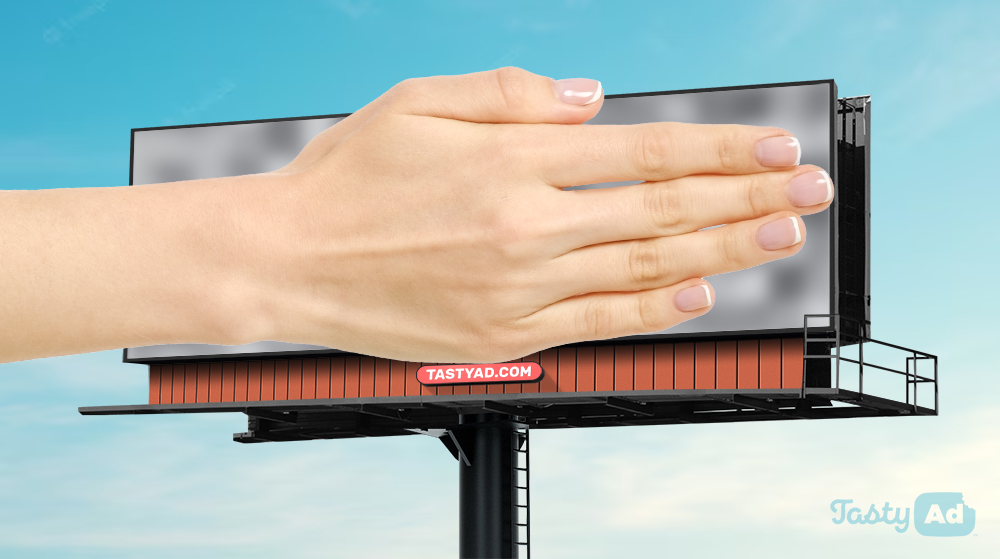You Can’t Say That (On A Billboard)

As independent billboard owners and reps, we all have our own standards as to what we would personally put on a billboard. As billboard owners, we have the right to say or not say whatever we want (pretty much) under the First Amendment. However, there are plenty of national, regional, and local restrictions as to what is allowed to be posted on a billboard.
The restrictions on billboard content vary depending on the country, state, or local regulations. However, there are some common themes and categories of content that are typically restricted or prohibited on billboards:
- Obscene or explicit content: Billboards cannot display sexually explicit or graphic images, offensive language, or any content that violates community standards.
. - Tobacco and alcohol: Many jurisdictions have restrictions on advertising tobacco and alcohol products, especially if the advertisement targets minors or promotes excessive consumption.
. - Illegal activities: Billboards cannot promote or endorse illegal activities such as drug use, gambling (where prohibited), or any other criminal behavior.
. - False or misleading information: Advertisements that contain false, deceptive, or misleading statements are generally prohibited.
. - Violence and discrimination: Billboards cannot display content that promotes discrimination, or incites violence against individuals or groups based on race, religion, ethnicity, gender, sex, etc.
. - Defamatory content: Billboards cannot display content that harms the reputation of an individual or organization through false statements or unsubstantiated claims. However, this can be a grey area. Just look at the Better Business Bureau. Anyone can go on their website and post public claims about how a business treated them. Any claim should always be cited with the billboard purchaser’s name.
. - Political advertisements: Regulations surrounding political advertisements vary, but there may be rules regarding the disclosure of sponsorship, funding sources, and limits on campaign advertisements in certain locations.
. - Trademark infringement: Billboards cannot use trademarks or copyrighted material without proper authorization from the owners.
. - Health claims: In many jurisdictions, there are restrictions on health claims made in advertisements, particularly for pharmaceuticals, medical treatments, or dietary supplements.
. - Marijuana ads… These vary widely by state and local authorities. In most states, even if you can advertise a dispensary, you can not show pictures of actual marijuana plants on billboards. You also can not run marijuana advertisements within so many feet of a school, recreation facility, park, etc.
National regulations on advertising from the Federal Trade Commission
Essentials of Advertising and Marketing
In the realm of advertising and marketing, there are fundamental principles that need to be upheld. It is essential for advertisements to be truthful, free from deception or unfairness, and grounded in evidence-based claims. Certain specialized products or services may be subject to additional regulations.
Children
When targeting children directly or marketing products intended for kids to their parents, adherence to truth-in-advertising standards is crucial. It’s important to be aware of and comply with regulations such as the Children’s Online Privacy Protection Act (COPPA), which safeguards children’s privacy. The Federal Trade Commission (FTC) provides resources on COPPA, as well as guidelines for food advertising directed at children and adolescents.
Endorsements, Influencers, and Reviews
For businesses utilizing endorsements in their marketing strategies, it is imperative to ensure compliance with the FTC Act and the FTC’s Guidelines Concerning Use of Endorsements and Testimonials in Advertising (Endorsement Guides). In the realm of social media influencers, both businesses and influencers themselves must take the necessary steps to transparently disclose material connections. To understand these requirements better, it is advisable to consult FTC compliance materials. The FTC also offers resources regarding consumer reviews, including information on compliance with the Consumer Review Fairness Act.
Environmental Marketing
With an increasing range of “green” options available to consumers, companies making environmental claims—whether related to their products or packaging—must be supported by competent and reliable scientific evidence. The FTC’s revised Green Guides provide valuable guidance on this matter. If you come across what you suspect to be deceptive environmental claims or practices, you can file a complaint.
Health Claims
Companies must substantiate their advertising claims with solid evidence, especially when marketing food, over-the-counter drugs, dietary supplements, contact lenses, and other health-related products.
Made in USA
If you promote your products as “Made in the USA,” it is important to be aware of the law’s requirements. Certain products are obligated to disclose their U.S. content, while manufacturers and marketers making claims about the level of U.S. content need to familiarize themselves with the FTC’s Made in USA Labeling Rule and Enforcement Policy Statement on U.S. Origin Claims.
It’s important to note that the specific rules and regulations regarding billboard content can vary widely, and it’s advisable to consult local authorities or legal experts for accurate information regarding a particular jurisdiction.
Unsure what you can post on billboards in your local city and state? Contact your local city, state, and regional representatives to be sure. It may also be a good idea to contact your attorney as they will have more legal insight.

